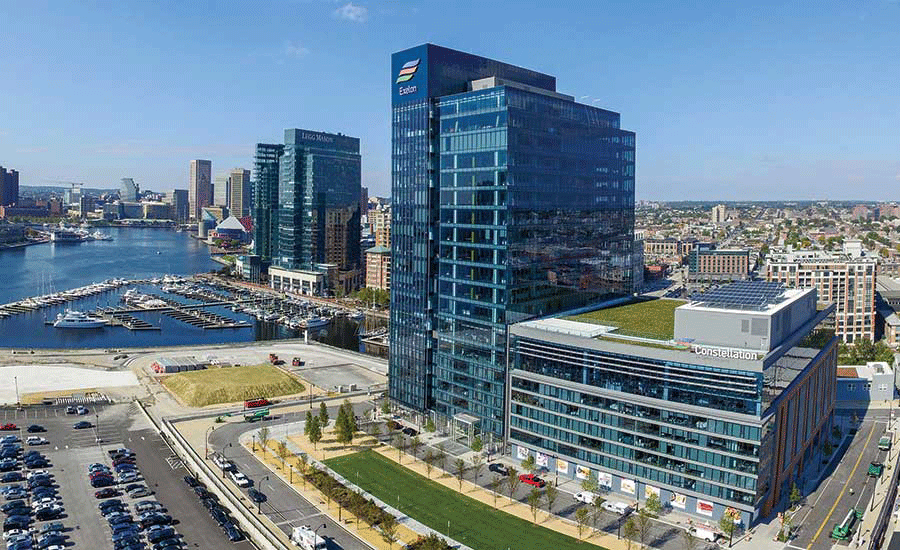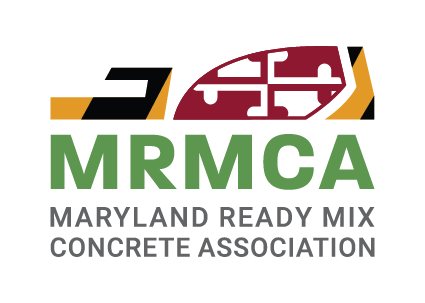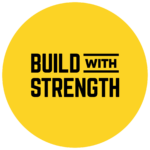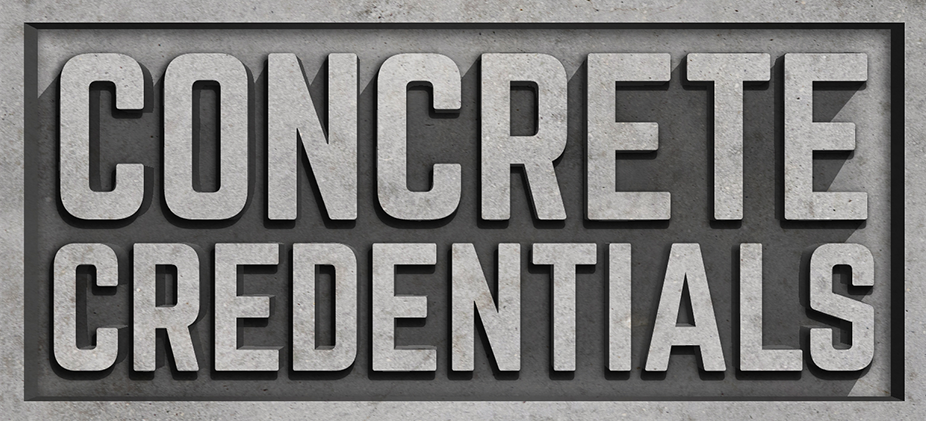Concrete is the material of choice for sustainable buildings of all types including homes (single and multi-family), schools, offices, warehouses, and industrial facilities.
Concrete allows planners and designers to offer owners a building that is energy efficient, safe, quiet, and comfortable, while also allowing unlimited opportunities for architectural appeal and open space configuration. And, concrete walls can be constructed using conventional removable forms, stay-in-place Insulated Concrete Forms (ICF), site-cast, or Tilt-Up wall panels.
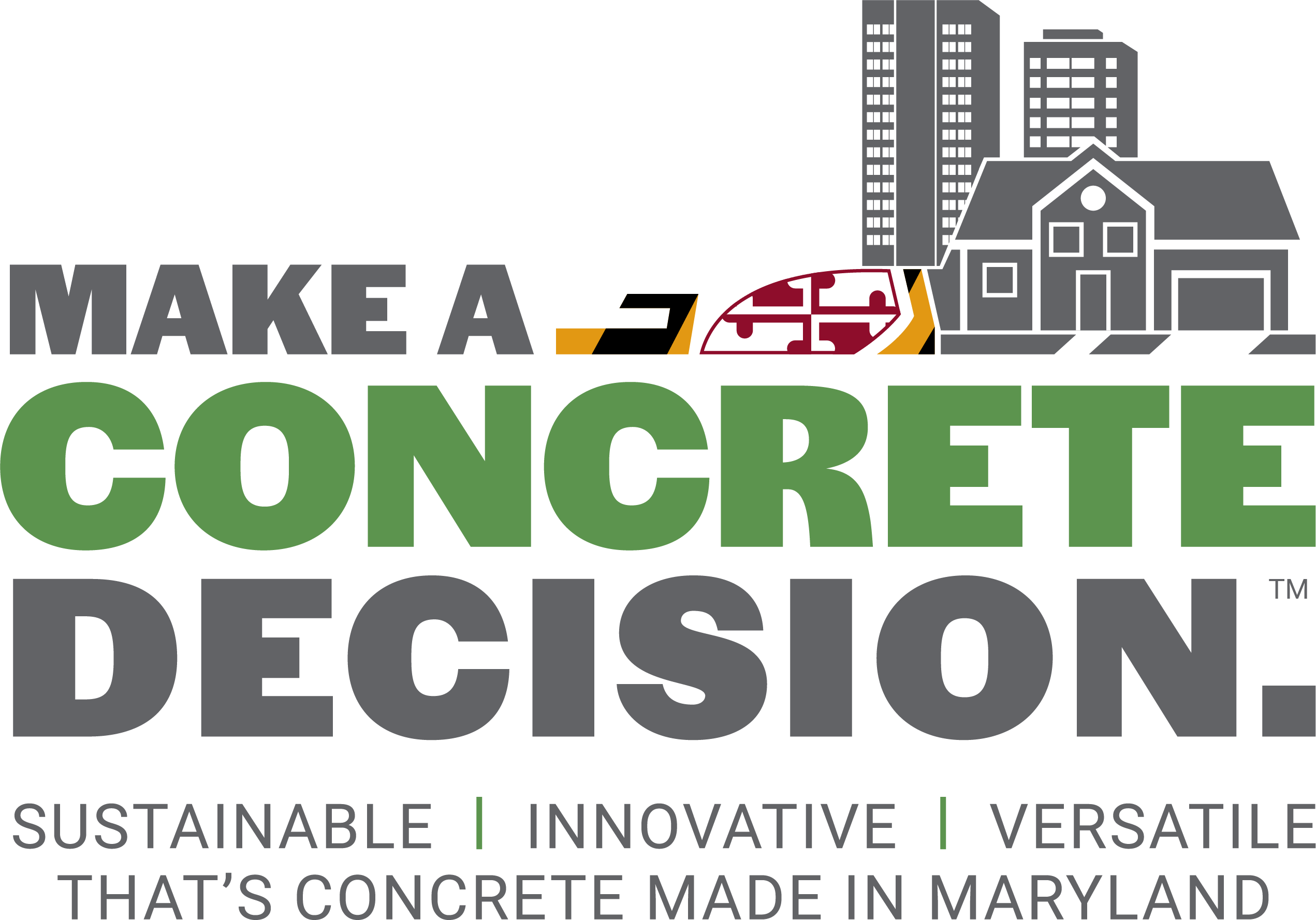
INSULATED CONCRETE FORMS (ICF)
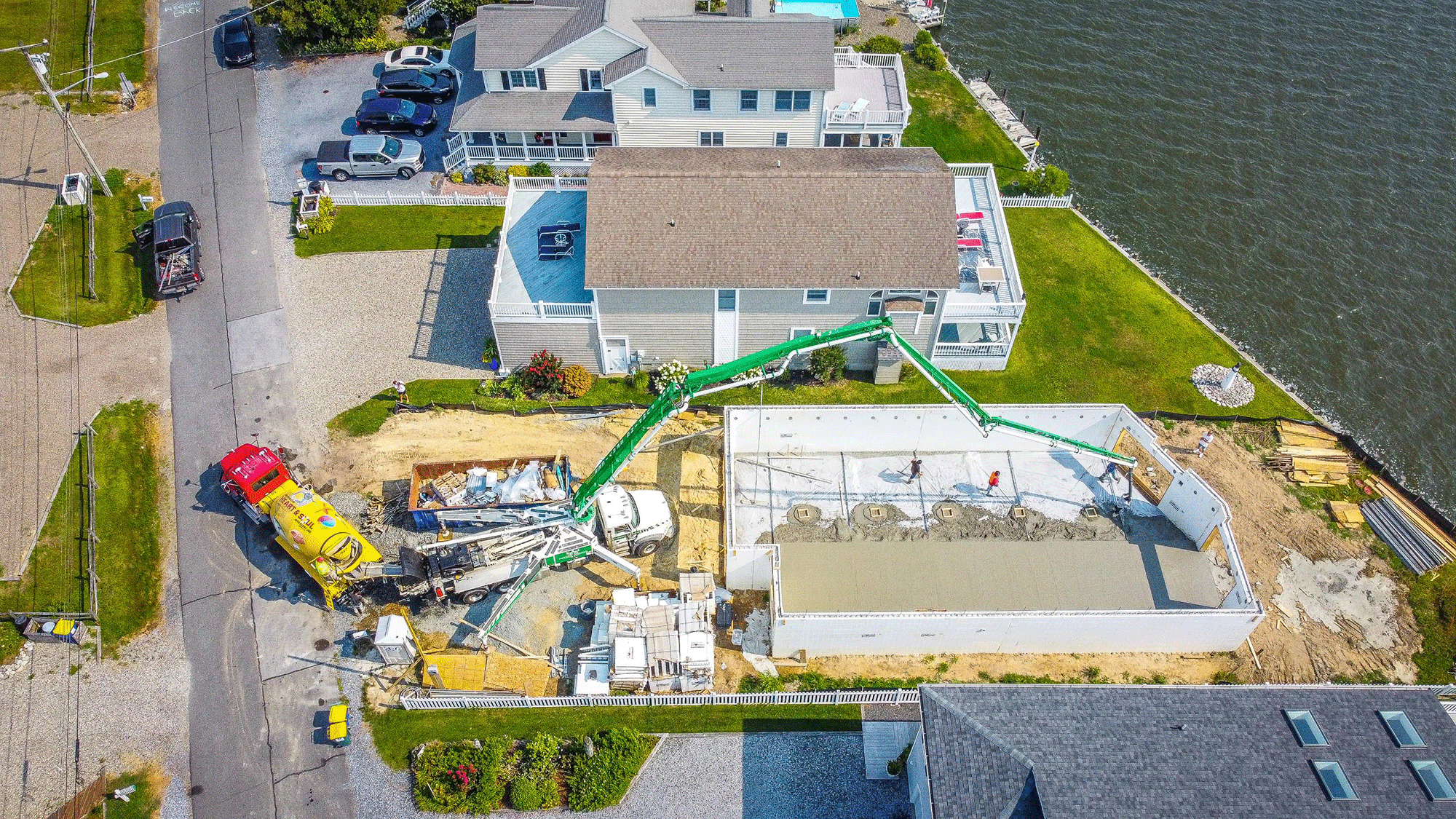
ICFs use rigid foam insulation to form and encase concrete walls. On the job site, interlocking ICF blocks, or panels are assembled with ease, and held in place at a desired thickness with engineered ties. Reinforcing is often added, then concrete is poured in the cavity. Along with systems for easy mounting of finishes and channeling of utilities, the insulation remains in place with the concrete to provide ICFs’ advanced economic, thermal, safety, environmental and comfort benefits.
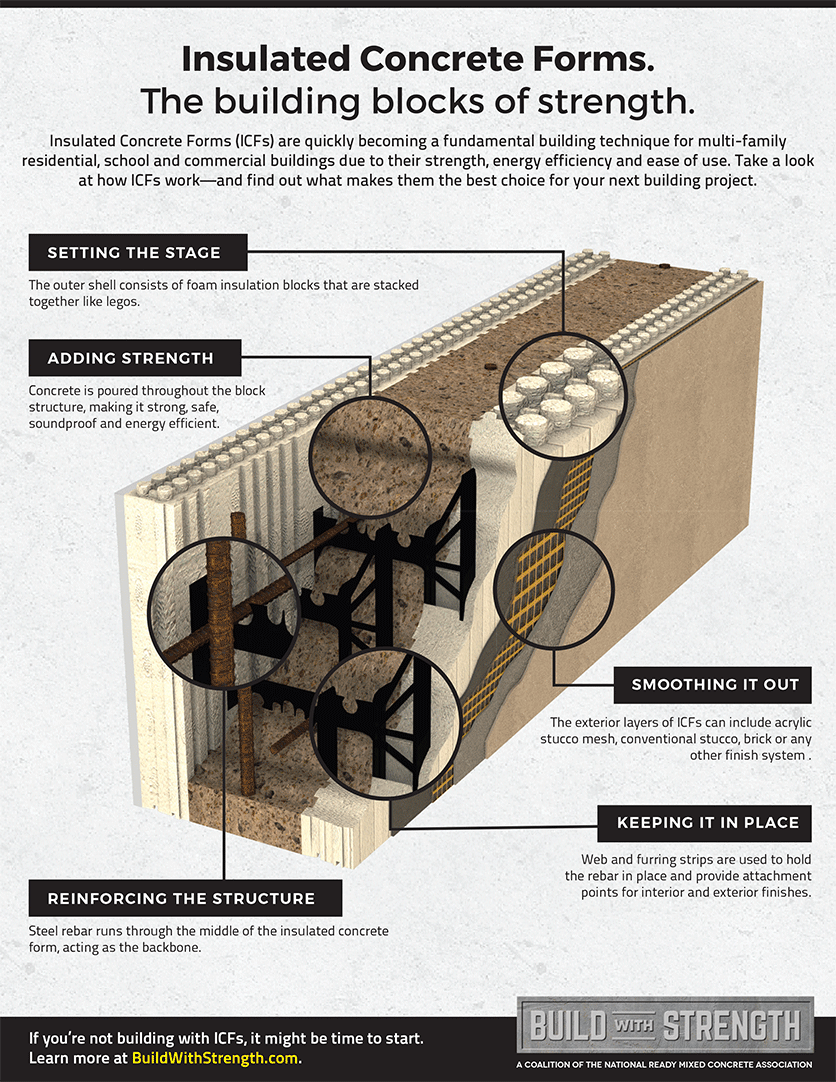
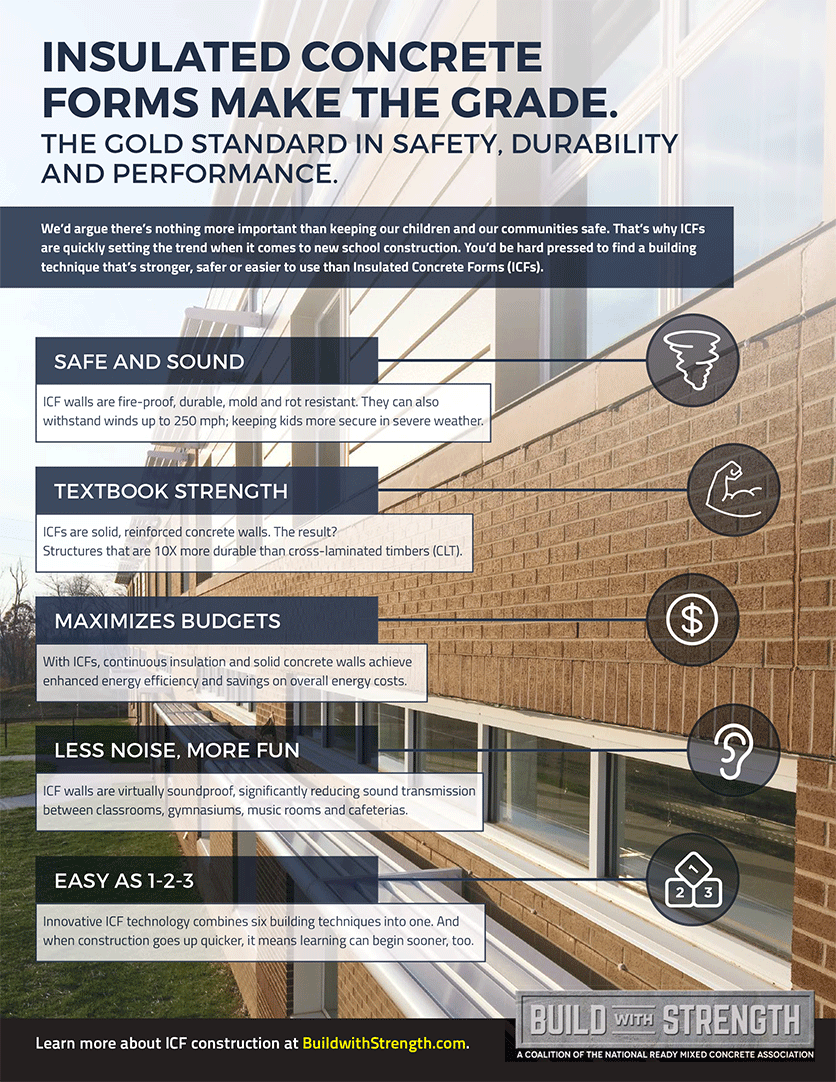 Make the
Make the
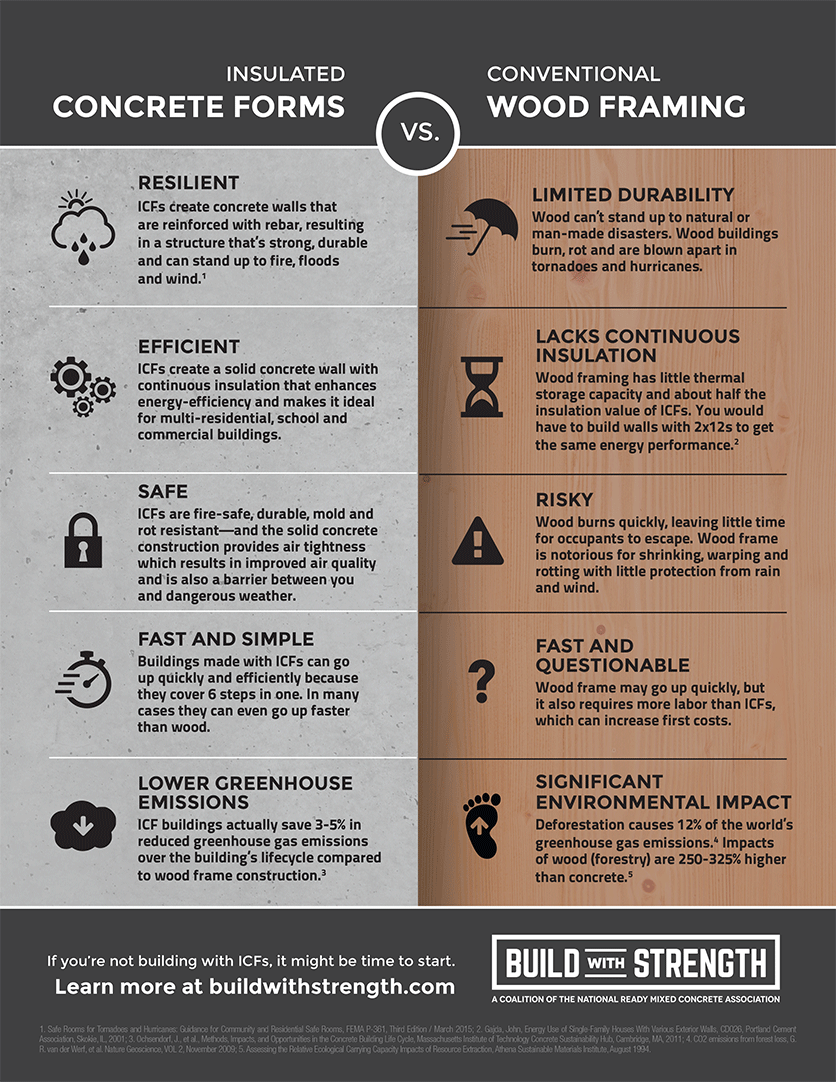
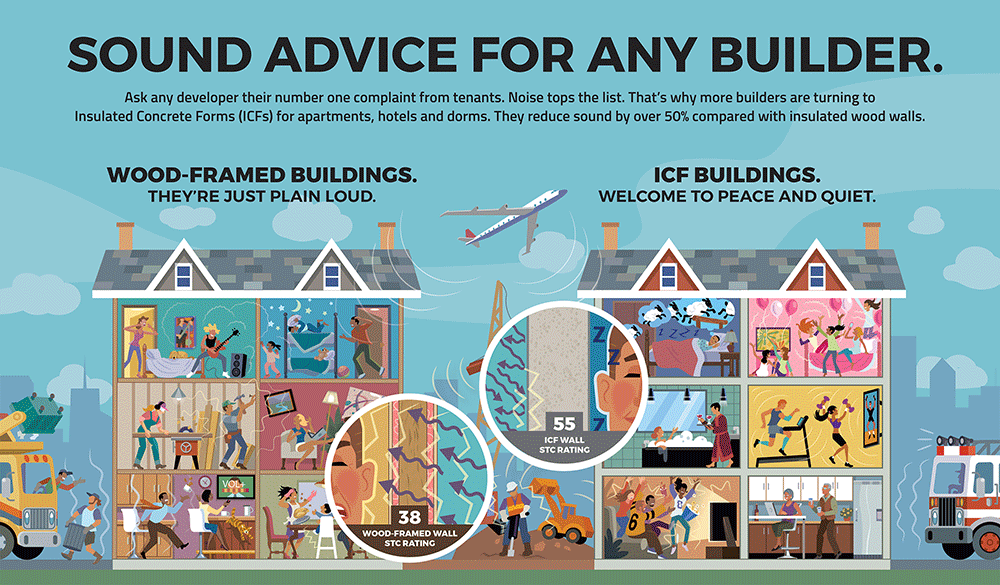
CAST-IN-PLACE (CIP)
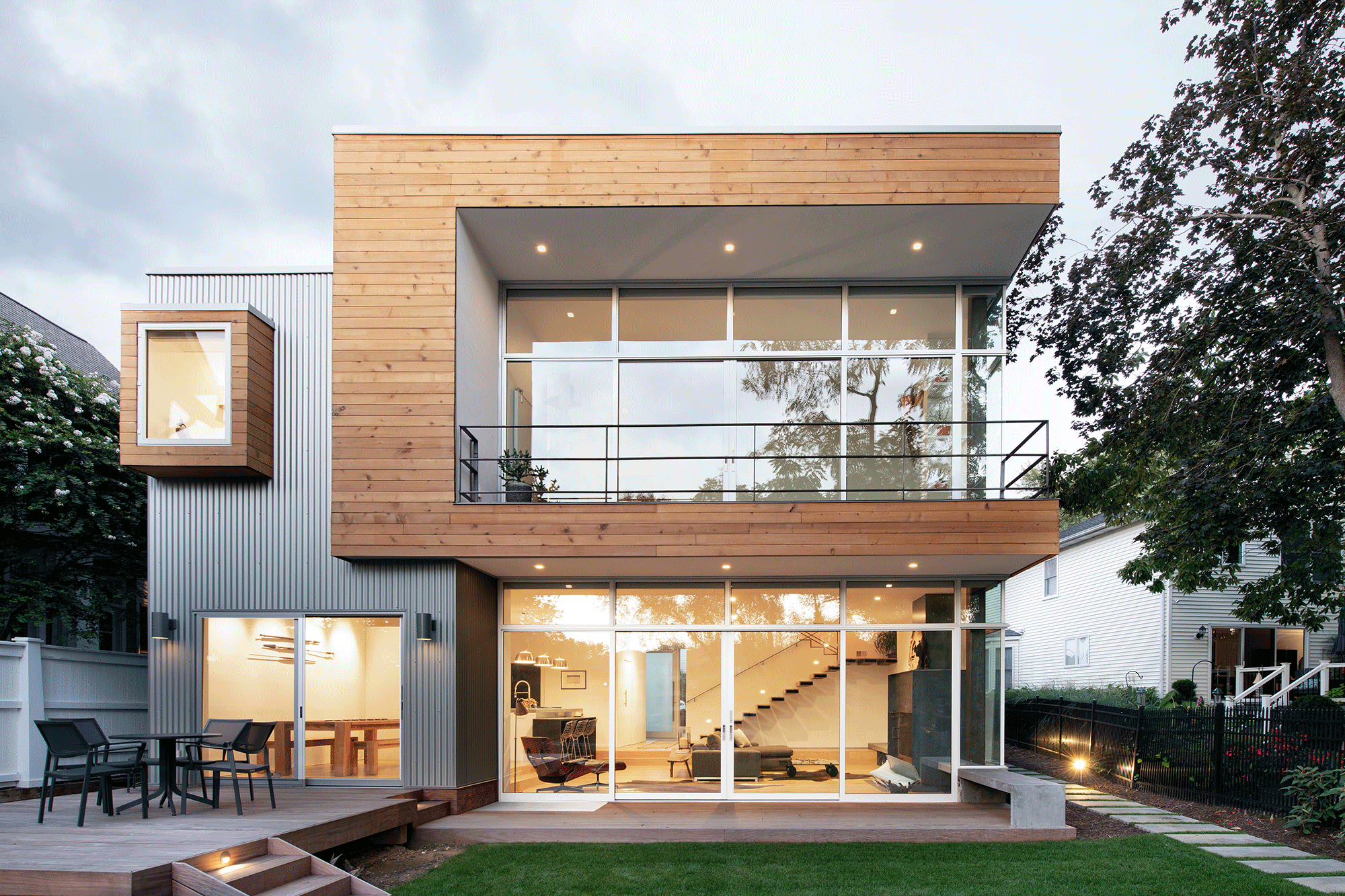
Concrete walls that are made with ready mix concrete placed into removable forms erected on site. Historically, this has been one of the most common forms of building basement walls. The same techniques used below grade can be repeated with above-grade concrete walls to form the first floor and upper levels of homes.
TILT-UP WALL PANELS
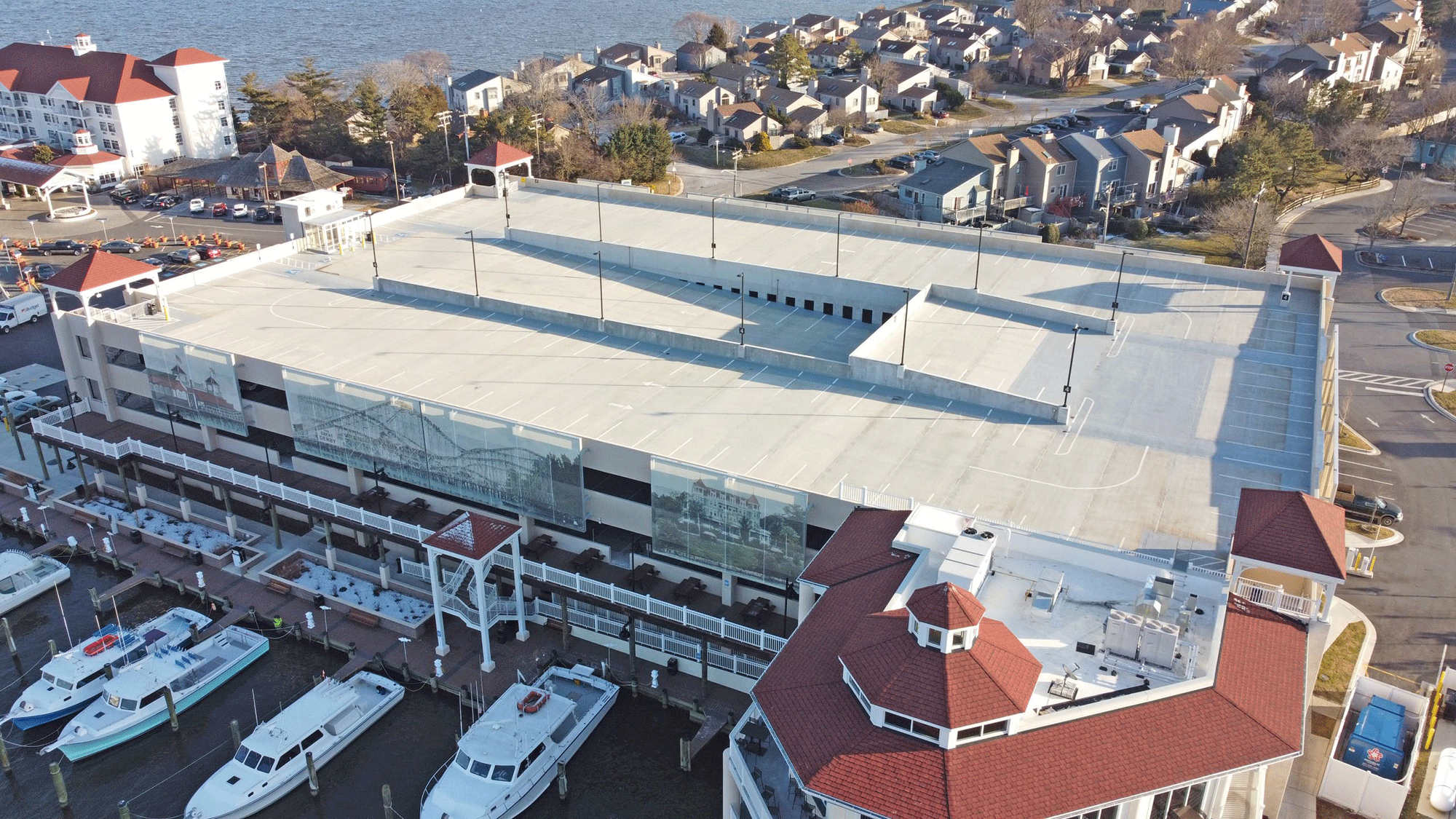
USES: warehouses, food storage, schools, institutions
Tilt-up is the advanced construction method for low to mid-rise structures. Load-bearing concrete wall panels are cast horizontally on site and then tilted up into position. The choices of colors and textures are unlimited.
ABOVE GRADE CONCRETE WALLS
Uses: homes, commercial buildings.
The benefits and popularity of concrete walls for above grade applications are growing in the United States and specifically in Maryland. Solid concrete construction is a long-term, quality alternative to typical wood and steel framed houses. The benefits include energy efficiency, fire-resistance, better strength against natural disasters, quiet living, and better value.
